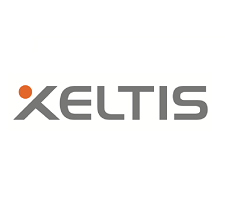 The preliminary results from a clinical trial assessing a restorative haemodialysis access graft have shown promising early puncturing, patency and safety data. These findings from an ongoing first-in-human study of the Axess graft (Xeltis) are being presented for the first time by trial investigator Matteo Tozzi (University of Insubria, Varese, Italy) today at the Charing Cross Symposium (CX 2022; 26–28 April, London, UK and virtual).
The preliminary results from a clinical trial assessing a restorative haemodialysis access graft have shown promising early puncturing, patency and safety data. These findings from an ongoing first-in-human study of the Axess graft (Xeltis) are being presented for the first time by trial investigator Matteo Tozzi (University of Insubria, Varese, Italy) today at the Charing Cross Symposium (CX 2022; 26–28 April, London, UK and virtual).
Axess is a synthetic, biocompatible blood vessel, which, overtime, is colonised by the patient’s own tissue following implantation and becomes a living vessel via the process of endogenous tissue restoration.
To date, it has been implanted in 11 end-stage kidney disease patients, with a median follow-up time of 6.5 months, across five European sites as part of the Axess study. Overall, more than 600 dialysis sessions have been enabled in this patient group, with puncturing—or dialysis initiation—starting as early as two weeks after implantation in some patients.
Preliminary data analysis shows “very promising outcomes” on primary endpoints, according to a Xeltis press release. The current data show 100% rates of functional patency and safety, with no aneurysms or infections reported, and “excellent ease-of-use” for surgeons and dialysis nurses, the release adds.
“Our first clinical experience using the Axess device is extremely encouraging. This fully synthetic graft is easy to implant, can be promptly punctured and exhibits an excellent safety profile,” said Tozzi. “Its potential to turn into a longer-lasting natural vessel is an additional benefit and suggests that an optimal solution for dialysis patients may be within our reach.”
“At a time when fistulas are being challenged as a first-line treatment in a number of dialysis patients, the first ever clinical data for Axess are particularly significant, and aligned with its remarkable and unprecedented positive results from preclinical trials, showing its full endothelialisation,” said Frans Moll (University Medical Center Utrecht, Utrecht, The Netherlands), who will present data on preclinical developments with Axess at CX 2022.
“The early outcomes from our Axess trial are very promising, so we have decided to expedite the development of this revolutionary restorative device with an international pivotal trial, starting this year, with the aim to reach patients who need haemodialysis as soon as possible,” said Xeltis CEO Eliane Schutte.










